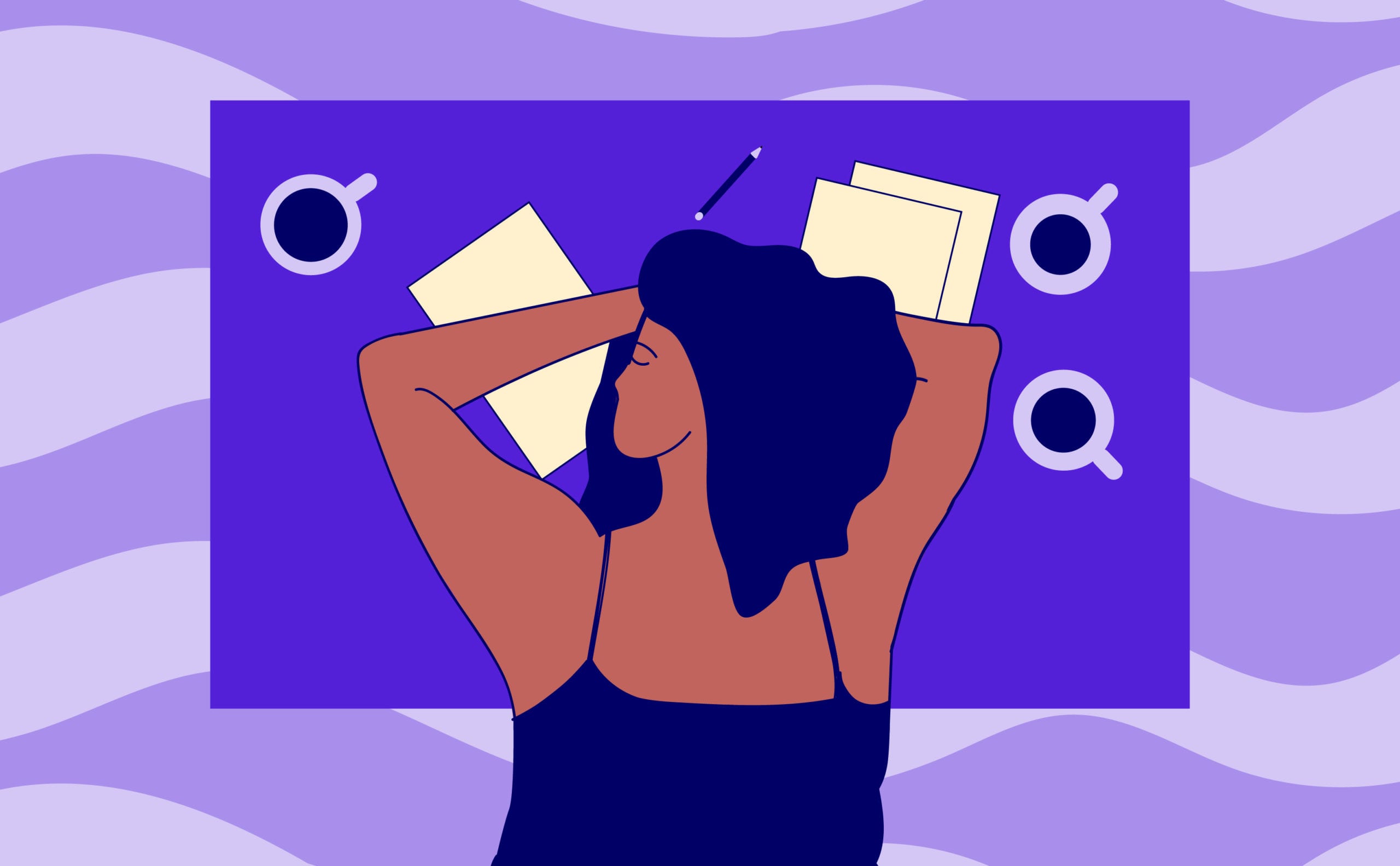To start, we’re going to go ahead and address the elephant in the room. Yes, menopause brain fog IS a very real thing. No, you’re not imagining it or “going crazy.”

Small decreases in cognitive abilities begin as early as your 30s (surprising, right?), with evidence showing small changes in memory performance across the menopause transition that aren’t accounted for by age or other factors. Several studies have found that different aspects of cognition, including verbal learning, attention, and memory performance decline as we shift from pre-menopause into perimenopause. These continue into menopause, with small but statistically significant decreases in attention, processing speed, and other cognitive problems — confirming that, for some of us, cognitive decline is indeed associated with the menopause transition.
Why does brain fog happen?
As more and more research emerges, we’re getting a better grasp on just how important a role hormones levels play in cognition-related conditions, such as brain fog. For example, as estrogen levels drop, changes occur including a drop in the metabolism of glucose in the brain (glucose being the brain’s primary fuel), and this may well be why you may feel “off your game.” Additionally, cognitive function is related to other common symptoms experienced by women in this age group: sleep disturbances, high stress levels, depression, fatigue, and night sweats – all of which may affect our mental performance.
The experience of brain fog, including the occasional need to search for words or forgetting something that seemed at the tip of your tongue just yesterday, can be very unsettling. In fact, one of the fears of midlife women is that their “foggy brain” is an early sign of dementia and especially Alzheimer’s disease. Here is the good news, though: although these symptoms can be similar, the brain fog of menopause is usually temporary and things get “back to normal” once the hormonal upheaval of this transition has settled.
But what about the link between estrogen and actual dementia, and more specifically, Alzheimer’s disease?
We do know that a younger age at menopause is associated with an increased risk of Alzheimer’s. In one study, women who went into menopause between ages 41-46 had a 29% higher chance of developing Alzheimer’s than women who hit menopause between 51-55.
To be clear, menopause itself does not cause Alzheimers. Estrogen may be just one link in the complex nature of dementia, and studies are ongoing to further elucidate genetic, gender, hormonal, and metabolic risk factors that contribute to this disease.
There’s no way to sugarcoat the fact that upwards of 60% of women report difficulty concentrating during menopause, but we CAN take comfort in knowing that these changes are temporary, and the majority will NOT develop dementia.
Cognitive evaluation
Neurologists and neuropsychiatrists, doctors who specialize in diagnosing and treating brain disorders, can perform evaluations to test for cognitive defects (for example, problems with executive functions, like abstraction, conceptualization, attention, memory and more — these tests are usually done with paper & pencil). More often than not, women in menopause will score normally — in which case attention, focus, sleep problems, and stress may be contributing to brain fog. Humans aren’t hardwired to excel at multitasking, and we don’t know about you, but these days it feels like everything and everyone is demanding our attention.
Although brain fog of menopause and early dementia symptoms overlap in some aspects, there are some clear cut differences between the two. Getting lost in familiar places, difficulty performing daily tasks, difficulty making decisions or handling finances, and repeating statements over and over are more worrisome and warrant a conversation with a healthcare provider, who can perform a cognitive evaluation.
Fortunately, brain health is not out of our control, and there’s much we can do to nourish that noggin as we age. As Dr. Richard Isaacson, founder of the Alzheimer’s Prevention Clinic at Weill Cornell Medicine and NewYork-Presbyterian Hospital states:
“Just like you can’t prevent a heart attack or a stroke definitively, you can’t prevent Alzheimer’s definitively. But one in three cases can be either preventable or delayed.”
And remember…
As Dr. Jen Gunter states, “Girls have amazing, capable brains before they enter puberty and many women who never take estrogen continue to achieve great things after their final menstrual period.” Our worth does not depend on the amount of circulating estrogen in our bodies.
Dr. Anna Barbieri, MD
Pro tip #1
Although cognitive health may be difficult to talk about, it’s incredibly important to do so. Talking with family can shed light on your genetic health history, and friends can help keep an eye out for instances of brain fog (and know not to jump in on your behalf). Of course, talking about something like this also helps smash the taboo around it, which is why we’re here in the first place!





